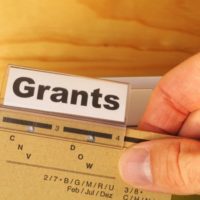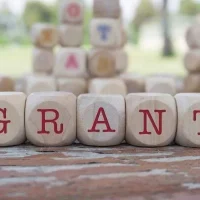Deadline: 13-Nov-20
The West Central Initiative (WCI) is welcoming for its Resiliency Fund Sustainable Region Grant program intended to support nonprofits with a focus on sustainability solutions in their response to and recovery from the effects of the COVID-19 pandemic.
The Resiliency Fund Sustainable Region Grants : Efforts focused on sustainable development – particularly sustainable agriculture and food systems and climate change.
Priorities
They will prioritize applications that:
- Are being led by, or are serving Black people, Indigenous people and/or people of color.
- Specifically focus on building a local sustainable food system, sustainable agricultural practices and catalyzing climate-conscious work.
Funding Information
- A grant request in the range of $5,000 to $10,000 is suggested.
Eligibility Criteria
To be eligible for a Resiliency Fund Sustainable Region award your organization must:
- Be a 501(c)(3) nonprofit organization, school or unit of government (including Tribal government or division) or must be fiscally sponsored by another organization with this status.
- Serve people of WCI’s geography which includes 9 counties – Becker, Clay, Douglas, Grant, Otter Tail, Pope, Stevens, Traverse, Wilkin and the portion of the White Earth Nation in Becker.
- Only one application per organization will be considered.
Allowable Uses and Expenses
Grant dollars can’t be used to cover expenses incurred prior to grant approval or for religious activities, lobbying or political activities. Requests can be for either general operating expenses or for a specific project. General operating support is most likely to be awarded to an organization that has an established presence and several years of activity in their community. Listed below are some examples of things that grant dollars might be used to do:
- Training and development needed by a local sustainability-focused organization to operate more effectively or maintain services during the pandemic.
- Technical assistance that builds the capacity of local partners who are working together to figure out a complex sustainability-focused issue such as transportation of local foods.
- Expenses associated with work that mobilizes community members to take sustainability-focused action.
- Research to better understand the scope and relevance of a sustainability issue in the community.
- Community convenings to identify sustainable development priorities and prompt dialogue.
- Community learning opportunities that educate and guide the general public on tangible ways of making sustainable choices.
- Educational campaigns targeted to getting important information into the hands of community stakeholders and decision-makers.
- Equipment or supplies needed to implement a local food system project, sustainable agricultural project or a project designed to combat climate change.
Evaluation Criteria
They’ll use the criteria listed below to review proposals. Their desire to spread awards across the region may result in a proposal being considered for funding even if it does not fully meet all the criteria.
- COVID-19 Response: The request addresses and responds to a need of the nonprofit or the community they serve that was specifically created or has been made worse by the pandemic.
- Sustainability Focus: The mission and proposed activities of the applicant reflect a commitment to sustainable development and to meeting the environmental, social and economic needs of the present without compromising the ability of future generations to meet their needs.
- Inclusive Community Engagement: The proposed project engages diverse populations and advances new community collaborations. The funded work will strengthen community partnerships and mobilize community members, particularly those impacted by racial disparities.
- Organizational Capacity: The applicant’s proposal demonstrates that they have the capacity, leadership and resources needed to complete the work to be funded.
- Sound Planning: The goals of the project and the steps to be taken to achieve them are clearly stated. The budget is realistic in relation to the applicant’s goals and activities.
- Impact: The results of the proposed work are clearly stated. The applicant has defined the quantitative (countable) and/or qualitative (describable) measures they will use to gauge the success of their efforts.
For more information, visit https://www.wcif.org/what-we-do/funding/applications.html





![Call for Applications: “Voices in Motion” Program [Sri Lanka] - fundsforNGOs Call for Applications: “Voices in Motion” Program [Sri Lanka]](https://www2.fundsforngos.org/wp-content/uploads/2023/04/dance-200x200.jpg)



































